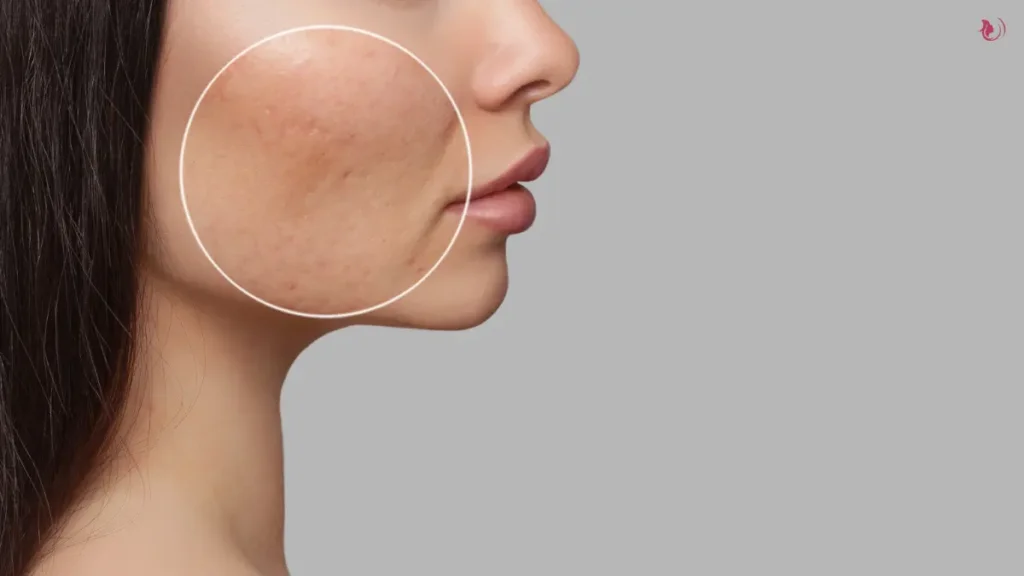Lili Reinhart, a beloved actress and advocate for mental health, recently opened up about her long-term struggle with acne and hyperpigmentation. In a heartfelt tweet, she shared her journey, stating,
“Since I was 12, I’ve struggled with acne. My skin has suffered consistent breakouts, hyperpigmentation, redness, and scarring.”
Lili Reinhart
This candid revelation resonates with many who face similar skincare challenges. It also highlights the importance of addressing and understanding the condition of hyperpigmentation.
What is Hyperpigmentation?
Hyperpigmentation is a prevalent skin condition where certain areas of the skin become darker than the surrounding skin. This darkening is due to an excess production of melanin, the pigment responsible for skin colour. Hyperpigmentation can affect people of all skin types and can appear on any part of the body. It manifests in various forms, including sunspots, age spots, melasma, and post-inflammatory hyperpigmentation, commonly resulting from acne.
Causes of Hyperpigmentation
Understanding the root causes of hyperpigmentation is essential for effective treatment and prevention. Several factors contribute to this condition:
- Sun Exposure: UV rays from the sun are a significant trigger. Prolonged sun exposure stimulates melanin production, leading to sunspots or age spots. Sunscreen is crucial in preventing UV-induced hyperpigmentation.
- Inflammation: Skin injuries, acne, or other inflammatory conditions can leave dark marks after healing. This type, known as post-inflammatory hyperpigmentation, is particularly common in individuals with acne-prone skin.
- Hormonal Changes: Hormonal fluctuations, especially during pregnancy or from the use of oral contraceptives, can cause melasma. This condition appears as dark patches on the face and is often challenging to treat.
- Medications: Certain drugs, including chemotherapy medications, can cause hyperpigmentation as a side effect. These medications can alter melanin production or skin sensitivity, leading to darkened areas.
Hyperpigmentation, while typically harmless, can be a cosmetic concern for many. It affects self-esteem and confidence, making it a priority to find effective treatments.
Lili Reinhart’s Skincare Journey
Lili Reinhart’s transparency about her skincare struggles shines a light on the emotional and physical impact of conditions like hyperpigmentation. She expressed her motivation to find solutions not only for herself but for others facing similar issues. Her statement, “This is my skin now, makeup-free… no filter,” emphasizes the importance of self-acceptance while seeking improvement.
“This is my skin now, makeup-free… no filter,”
Lili Reinhart
Reinhart’s approach to dealing with her skin issues is both inspiring and educational. By sharing her experiences, she encourages others to pursue effective treatments and embrace their natural beauty. Her journey underscores the significance of personalized skincare regimens tailored to individual needs.

Effective Treatments for Hyperpigmentation
Treating hyperpigmentation requires a multi-faceted approach, often involving a combination of skincare products and professional treatments. Here are some common methods:
- Topical Treatments: Over-the-counter and prescription creams containing ingredients like hydroquinone, retinoids, vitamin C, and kojic acid can help lighten dark spots. These ingredients work by inhibiting melanin production and promoting skin cell turnover.
- Chemical Peels: Treatments like PRX-T33, which combines trichloroacetic acid (TCA) and hydrogen peroxide, can rejuvenate the skin without significant downtime. Chemical peels exfoliate the top layer of skin, reducing the appearance of hyperpigmentation.
- Laser Therapy: Laser treatments target and break down melanin deposits in the skin. Options such as fractional laser and intense pulsed light (IPL) are effective in treating various forms of hyperpigmentation.
- Sun Protection Measures: Consistent use of broad-spectrum sunscreen with at least SPF 30 is crucial. Sunscreen prevents further darkening of hyperpigmented areas and protects the skin from harmful UV rays.
Embracing Your Skin
Lili Reinhart’s journey with hyperpigmentation and acne is a powerful reminder of the importance of self-care and patience. While treatments can significantly improve skin appearance, embracing one’s natural skin is equally vital. Reinhart’s message of self-acceptance encourages individuals to find confidence in their skin, whether they choose to wear makeup or go bare-faced.
Hyperpigmentation is a common yet manageable skin condition. Understanding its causes and exploring effective treatments can lead to clearer, more even-toned skin. Lili Reinhart’s candid sharing of her skincare struggles offers both comfort to those facing similar challenges. Don’t forget. By combining professional treatments with daily skincare and sun protection, achieving radiant, healthy skin is within reach for everyone.


